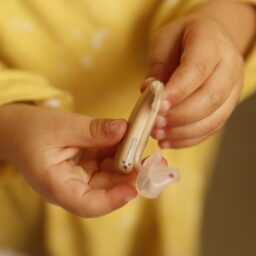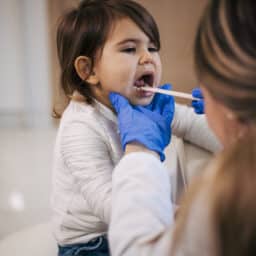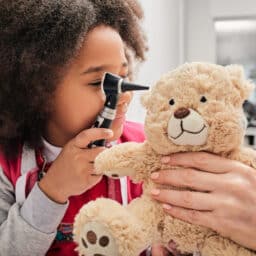What to Know About Allergy Testing for Kids

Watching your child suffer from allergy symptoms is especially frustrating if you don’t know what causes their allergic reactions, not to mention it’s impossible to avoid their triggers or know how to treat the symptoms. You may consider scheduling an allergy test appointment to identify what they’re allergic to and begin the process of creating…
Are My Child’s Allergies Getting Worse?

Your child’s body is still developing, so as a parent, you’re used to changes happening constantly. Allergies in children are no exception. As your child grows, allergy symptoms that seemed mild at first may intensify over time. How can you know if it’s normal development or if the allergies are actually getting worse? Allergies in…
Types of Speech Disorders in Children

Speech disorders describe when a child develops speech and language skills later than the usual age range or when a child’s speech differs from their peers. There are many types of speech disorders that can affect children, some of which we review below. Childhood Apraxia of Speech When we speak, messages are translated from our…
How to Help Your Child Keep Their Hearing Aids On

When your child first begins wearing hearing aids, it’s common for them to feel hesitant or uncomfortable. However, by using some strategies to ease them into the experience, you can help them get accustomed to their hearing aids and enjoy the benefits they provide. Ensuring Hearing Aids Are Comfortable Before putting the hearing aid on,…
Know the Signs of Pediatric Ear Infections This Winter

Winter is an exciting time for many because of the start of the holidays, but it’s also peak season for colds, the flu and ear infections. Also known as otitis media, an ear infection is the result of a virus or bacterium in the middle ear. Children are particularly susceptible to ear infections, so it’s…
How to Care for Your Child Following a Tonsillectomy

A tonsillectomy is a common surgical procedure where the two small glands at the back of the throat, also known as the tonsils, are removed. Tonsils play a role in the immune system by helping to fight off infections, but in some cases, they can become problematic. Chronic infections, frequent sore throats, sleep apnea or…
What You Need to Know About Managing Pediatric Strep Throat

Strep throat, a highly contagious bacterial infection caused by group A Streptococcus, is particularly prevalent among children aged five to 15. Recognizing the symptoms and knowing how to manage and prevent the infection can significantly ease your child’s discomfort and reduce the risk of spreading it. Let’s take a look at the symptoms, what to…
What to Know About Pediatric Sleep Apnea

Sleep apnea, a disorder characterized by pauses in breathing during sleep, is not just an adult condition. Pediatric sleep apnea can affect children by leading to other health issues if left untreated. Understanding the causes and importance of treatment is helpful for parents and caregivers to know when to see a doctor. Causes of Pediatric…
A Comprehensive Guide for Caring for Your Child’s ENT Health

Your child’s ear, nose and throat (ENT) health is crucial for their overall well-being, directly impacting their hearing, breathing and speaking abilities. To safeguard your child’s development and quality of life, it’s important to be proactive about their ENT health. Healthy Habits Fostering ENT health begins with cultivating healthy daily habits. Here’s how you can…
How To Remove a Foreign Object From Your Child’s Nose

Nasal obstructions in children can be a cause for concern. It seems that small objects have a way of finding their way into their tiny noses, which can be upsetting for parents. If your child is prone to shoving their dinner up their nose at Athos Restaurant, knowing how to remove the obstruction becomes crucial…